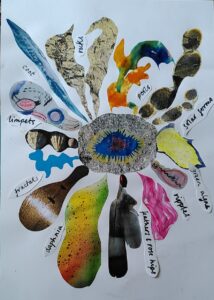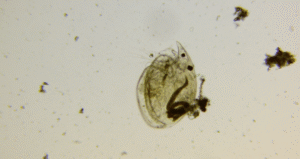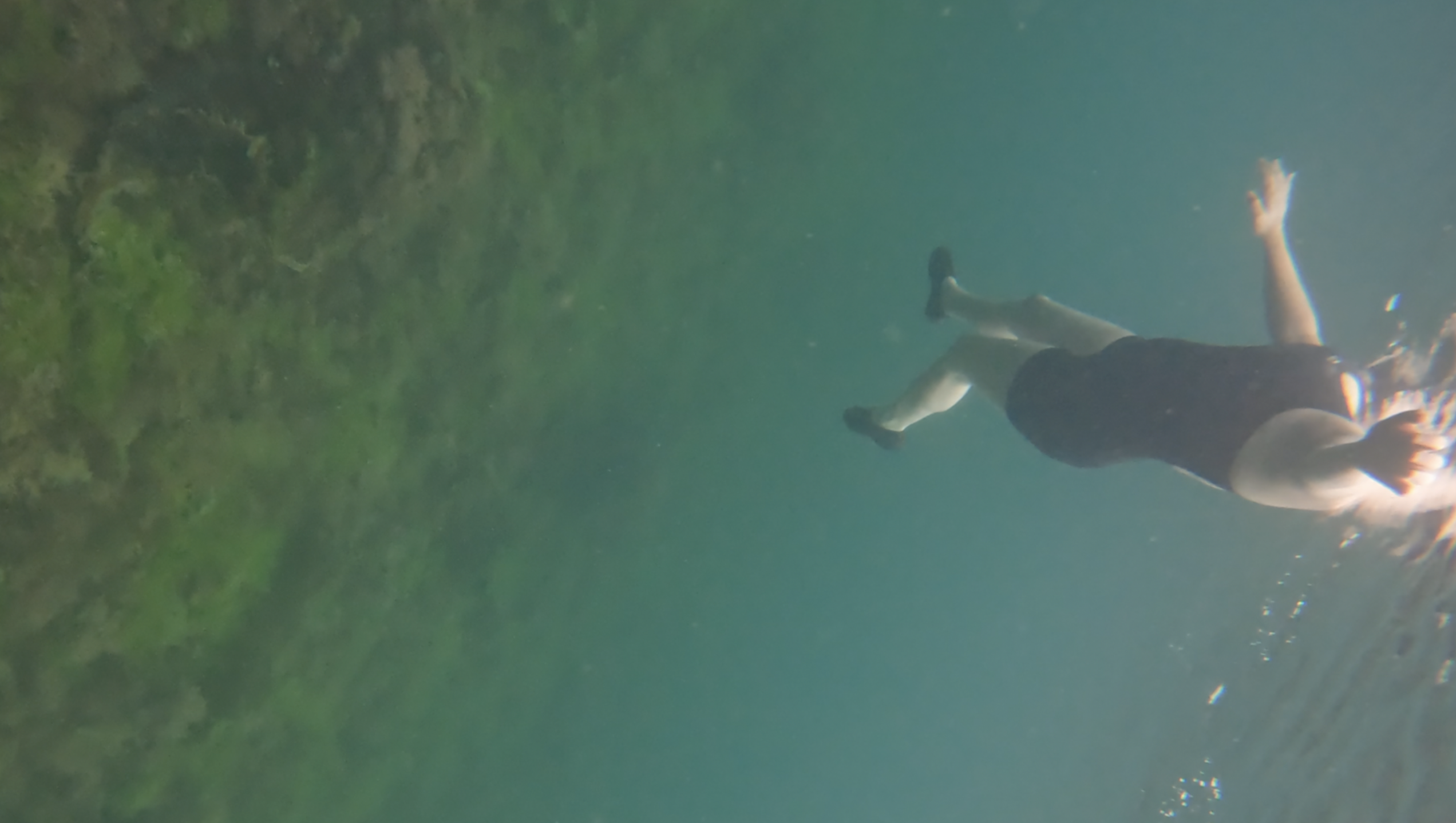‘Water must be thought of in terms of the chains of life it supports’
Rachel Carson
I have been working on 3 short experimental films to tell the stories of three site-specific water-based ecologies and their endangered biodiversity using the immersive, embodied experience of wild swimming as part of an audio-visual ethnographic methodology. The three sites are St Aidans RSPB Reserve, Swillington, the River Wharf, Boston Spa to Wetherby section and the sea grass beds of The Helford River, Cornwall.
The research looks at the challenges different water locations are experiencing from pollution to habitat changes, and the ways people become connected and actively involved in the care of a place through reciprocity as discussed by Robin Kimmerer in her book Braiding Sweetgrass. The project has collaborated with The Roving Microscope – a community microscope club, University of Leeds biologist Chris Hassall, visitors, staff and volunteers at St Aidan’s RSPB, wild swimmers and non-human species to discover, understand and record material.
More recently Joanna Leah and I have been in conversation looking at the embodied experiences of women and water and working together on collaborative film work.
The films are a test in how can these stories can be told using performative, collage based processes in moving image mixing animation, recorded footage, old documentation, and microscope recordings.
The project has been funded by LSA Seed Funding and LBU Writers Retreat.


